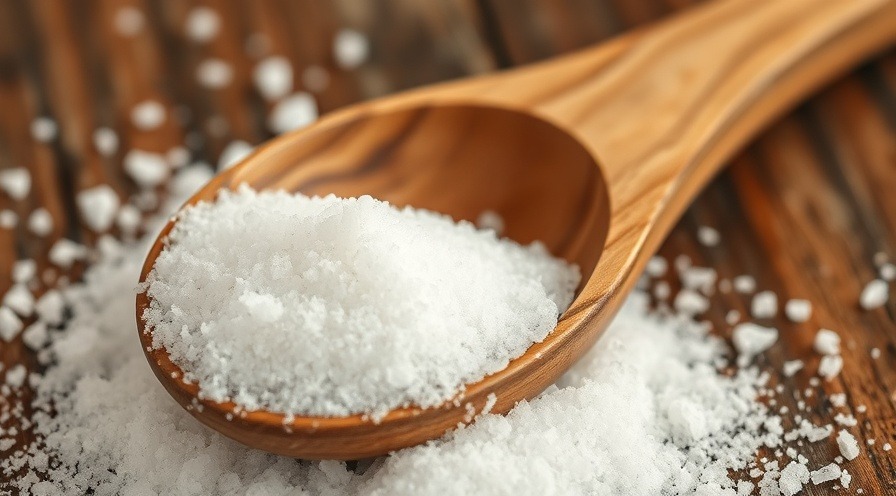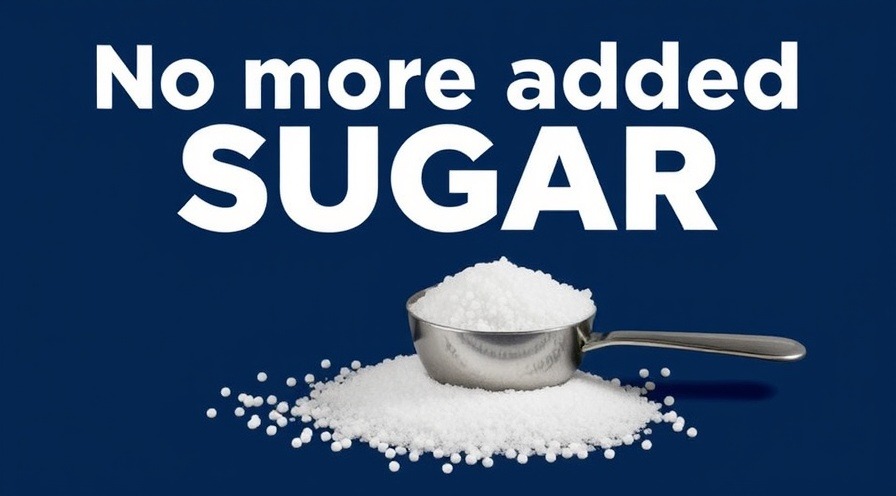
Understanding Sugar Substitutes: Erythritol and Stevia
The quest for healthier sweeteners has driven many to explore sugar substitutes, especially erythritol and stevia. As parents and adults increasingly focus on wellness, knowing the differences between these two sweeteners can help you make healthier choices for your family. Both options promise sweetness without the calorie load of sugar, but they have unique properties that may influence your decision.
In Erythritol vs. Stevia: What’s the Difference—and Which Is Better for You?, the discussion dives into the key differences between these two popular sugar substitutes, exploring insights that sparked deeper analysis on our end.
What is Erythritol?
Erythritol is a sugar alcohol that is found naturally in certain fruits, although it is often produced by fermenting corn or wheat starch. It typically tastes about 60-80% as sweet as sugar and is touted for having almost zero calories. Since your body doesn’t fully absorb erythritol, it mostly passes through urine, making it a popular choice for low-carb and diabetic-friendly diets. However, some adults may experience digestive discomfort, such as bloating or gas, if consumed in large quantities.
The Sweetness of Stevia: Nature’s Sugar
In contrast, stevia is derived from the leaves of the Stevia rebaudiana plant. Its sweet compounds, known as stevial glycosides, are extracted and processed to create various forms such as liquid drops, powders, or granules—200 to 300 times sweeter than sugar! Like erythritol, stevia also contains zero calories and does not impact blood sugar levels, making it a fitting choice for those looking for a natural sugar substitute. However, stevia's flavor can sometimes have a bitter or licorice-like aftertaste, which could deter some users.
Key Differences Between Erythritol and Stevia
Sweetness: Stevia is significantly sweeter than sugar, while erythritol offers a milder flavor.
Calories: Both erythritol and stevia are virtually calorie-free.
Taste: Erythritol provides a cleaner, sugar-like taste with a cooling effect, whereas stevia can have a more intense sweetness with potential aftertaste.
Digestion: Erythritol may cause bloating in higher doses but is generally easier on the stomach than other sugar alcohols; stevia tends to be gentler in this regard.
Usage in Cooking: Erythritol can add bulk in baking, while stevia is often best used in small amounts or combined with other sweeteners.
Which Sweetener Should You Choose?
Your choice between erythritol and stevia ultimately depends on your needs and dietary goals. Choose erythritol if you want a sugar-like experience, especially when baking or preparing everyday meals. It works well for keto and diabetic diets; just be mindful of your personal tolerance to its cooling aftertaste. On the other hand, if you're seeking a more intense and natural sweetness without carbs or sugar alcohols, stevia may be the option for you. Brands often combine both sweeteners to mitigate any downsides while providing a balanced sweetness.
Health Implications and Future Trends
As more health-conscious adults look to reduce sugar intake, the market for sugar alternatives continues to grow. Studies suggest that while these substitutes help cut down calories and manage blood sugar levels, it’s equally essential to approach them with a balanced perspective. Awareness of potential digestive issues and taste preferences can lead to more informed choices, ultimately fostering a healthier lifestyle.
Increased demand for products that incorporate erythritol and stevia suggests a shift toward higher utilization of natural ingredients in our diets. This trend represents not just personal wellness but also a societal move toward better health solutions, particularly among families looking to raise children with healthy eating habits.
Actionable Insights for Healthier Choices
When it comes to choosing between erythritol and stevia, consider experimenting with both to see what your palate prefers. Be aware of the unique benefits and potential side effects each one may carry. You could even begin to blend these sweeteners in recipes to strike a balance between flavor and health. Keep a food diary to monitor any digestive responses or taste preferences that could guide your future purchases.
As we navigate our lifestyles and dietary preferences, understanding sweeteners like erythritol and stevia will help us make smarter choices for our health and our families. Prioritizing natural substitutions will allow us to maintain the sweetness in our diets without guilt, making the journey toward wellness enjoyable.
So, the next time you're contemplating how to satisfy your sweet tooth, consider reaching for erythritol or stevia—they may just be the smarter options you need! Ask your doctor.
Disclaimer: The information provided on this website is for general informational purposes only and should not be considered medical advice, diagnosis, or treatment. Always consult a qualified healthcare professional before making any decisions or taking actions related to your health, including but not limited to medical conditions, treatments, diets, supplements, or exercise programs. The content on this site is not intended to replace professional medical guidance. The website and its authors are not responsible for any actions taken based on the information provided.
 Add Row
Add Row  Add
Add 




 Add Row
Add Row  Add
Add 

Write A Comment